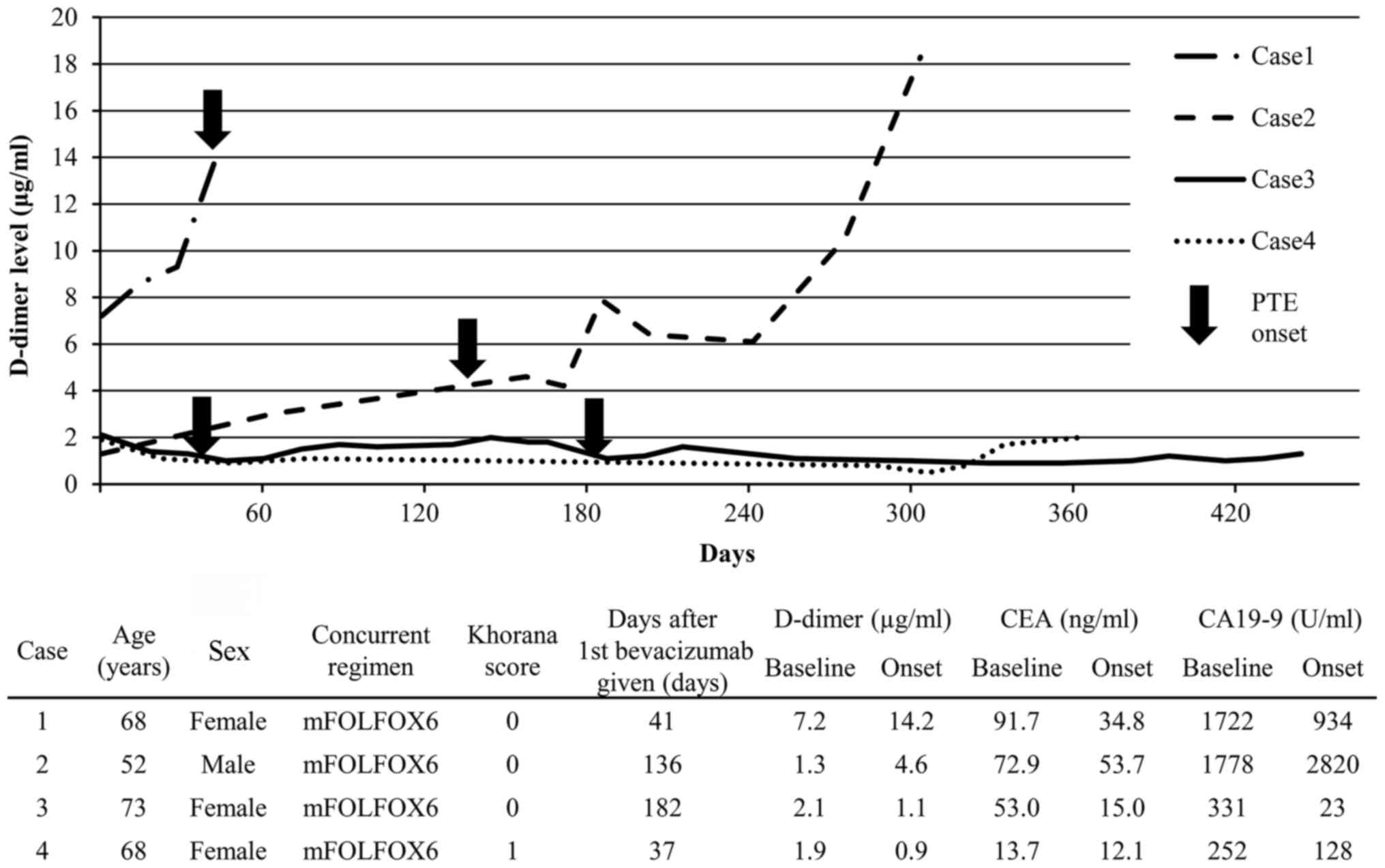Spandidos Publications style
Kanehira D, Kusakabe M, Shimizu S, Shimizu J, Irikuchi J, Hirai A, Oki R, Kato T, Yamasaki M, Uchino K, Uchino K, et al: Reliability and validity of D‑dimer monitoring for pulmonary thromboembolism in patients with unresectable, advanced or recurrent colorectal cancer treated with bevacizumab. Mol Clin Oncol 15: 165, 2021.
APA
Kanehira, D., Kusakabe, M., Shimizu, S., Shimizu, J., Irikuchi, J., Hirai, A. ... Uchino, K. (2021). Reliability and validity of D‑dimer monitoring for pulmonary thromboembolism in patients with unresectable, advanced or recurrent colorectal cancer treated with bevacizumab. Molecular and Clinical Oncology, 15, 165. https://doi.org/10.3892/mco.2021.2327
MLA
Kanehira, D., Kusakabe, M., Shimizu, S., Shimizu, J., Irikuchi, J., Hirai, A., Oki, R., Kato, T., Yamasaki, M., Uchino, K."Reliability and validity of D‑dimer monitoring for pulmonary thromboembolism in patients with unresectable, advanced or recurrent colorectal cancer treated with bevacizumab". Molecular and Clinical Oncology 15.2 (2021): 165.
Chicago
Kanehira, D., Kusakabe, M., Shimizu, S., Shimizu, J., Irikuchi, J., Hirai, A., Oki, R., Kato, T., Yamasaki, M., Uchino, K."Reliability and validity of D‑dimer monitoring for pulmonary thromboembolism in patients with unresectable, advanced or recurrent colorectal cancer treated with bevacizumab". Molecular and Clinical Oncology 15, no. 2 (2021): 165. https://doi.org/10.3892/mco.2021.2327
















